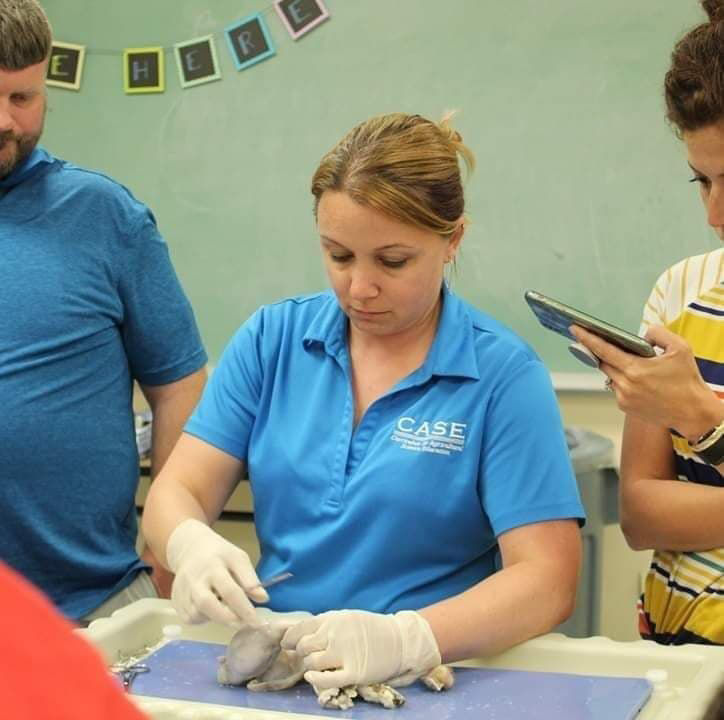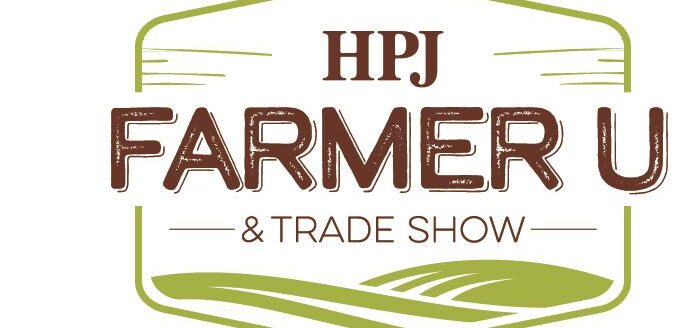Kansas teacher uses pageant platform to promote agriculture education

For Sherrie Cleavinger-Perry, her passion for teaching her students is equally as important as her desire to promote the agriculture industry through advocacy. An agricultural education instructor, she just started her 19th year of teaching high school students. Cleavinger-Perry grew up on a 400-acre family farm and participated in 4-H and FFA. She says her family raised Hereford cattle and also finished out Holsteins from the local dairy.
“I believe consumers need to know what’s out there,” she said. “There’s so much confusion that is out there with these products, processes and how they are portrayed in the media.”
She uses her title of 2019 Douglas County, Kansas Elite Ms. United States Agriculture to promote her platform of myth busting with agriculture education. The Miss United States Agriculture pageant is an advocacy program for women to teach and enhance the American agriculture story.
“A lot of times producers are so busy in the field, on the ranch and the pastures with the day-to-day grind they don’t get to interact with the community and stand up for agriculture,” she said. “Our stories are important and the stories from state to state and even county to county are so vastly different that somebody is going to be able to relate to yours.”
This competition is relatively new, having started less than 10 years ago. Although the Miss United States Agriculture pageant is a nationwide competition, several states including Florida, Iowa, Kansas, Maryland, Missouri, Nebraska, Ohio and Pennsylvania, have state competitions, which are preliminary pageants before Miss United States Agriculture. The areas of competition are on-stage introduction, interview, on-stage question, formal wear, state fun fashion, photogenic, resume and essay.
“I’d been interested in it for years but I did not fit in any of the categories so I encouraged my students to enter instead,” Cleavinger-Perry said. “Eventually they developed an elite Ms. competition, which I was able to participate in.”
Putting her platform to action
Living in Douglas County, Kansas, Cleavinger-Perry says there have been many opportunities to advocate for agriculture and exercise her platform of myth busting incorrect statements about agriculture in such an urban area.
“There are a lot of people who just don’t understand because they are four, if not five generations removed from the farm,” she said. “I try to make sure that people understand what production processes actually are—what’s normal and what’s not normal. I try to take the situations reported on the news and counteract it with the positives that are out there. And I try to talk about the differences between organic and inorganic farming as well as what a GMO actually is.”
She says her students learn quickly they should not talk anti-GMO in her classroom because they do not really know what a GMO is, which makes it difficult for them to argue against it.
“I tell them if they are truly passionate about something, research before you start talking, know your talking points and have evidence to support your opinion. Lots of kids as well as adults, just take what they see on the internet at face value and they don’t question it.”
She says one of the most common misconceptions she hears is that factory farms are bad. She says much of the community does not understand that a factory farm is also a family farm.
“They don’t realize those large scale operations are developed through sound production practices,” she explained. “It is a family-run business and they grew their farm by making good decisions. I compare it to a small store downtown and ask my students, would you fault that business for doing so well that they start a second location? Of course they say no, if they’re doing well why wouldn’t they start a second location? They don’t see it this way until I ask that question.”
Urban communities are challenging, but also rewarding
Cleavinger-Perry has taught in such a variety of scenarios and situations that she recognizes the positives and negatives to each and how she can make an impact as an agriculture advocate in each setting.
“I’ve gone from a small suburban community to an urban community on the West Coast back to a small community here in Kansas and then back to a large community in Kansas,” she said. “Teaching in a small community, I am able to reach down and get the best of the production kids and I’m able to teach multiple pathways, whether it be animal science, plant science, horticulture, ag mechanics or agribusiness systems,” she explained. “I’m able to teach it all and reach kids on so many different levels. When it comes to being in an urban area, the diversity of kids is such a benefit. You can’t imagine where the experiences will come from in those situations and it’s always a surprised to see which kids pick up on which subjects.”
Although she enjoys working with students with agriculture backgrounds, Cleavinger-Perry says she does not always know if she reaches students in agriculture-dominated communities because they are so familiar with the subject matter. Teaching students without agriculture upbringings is more challenging at times, but she is also able to introduce them to all agriculture has to offer whether it is a career opportunity they had not considered before or just teaching them to look at the industry through a different perspective.
“The light bulb moment, no matter what kind of school I’m at, drives me as well as other agriculture educators,” she said.
Lacey Newlin can be reached at [email protected].

